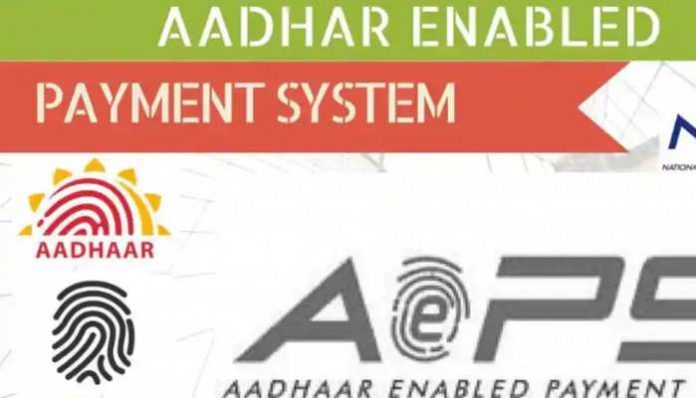Aadhaar Enabled Payment System: Aadhaar Enabled Payment System (AEPS) is a bank-based model in which online financial transactions are carried out in accounts through business correspondence using Aadhaar based biometric authentication. These also include accounts of beneficiaries of Direct Benefit Transfer (DBT).
Aadhaar Enabled Payment System: Today’s era is the era of digital. Keeping money in your pocket is also becoming a thing of the past. What about cash, digital payments are growing so fast that even ‘modern’ payment options like credit and debit are slowly becoming obsolete as time goes on. In digital payments, the government is now promoting Aadhaar Enabled Payment System AEPS. It is often used by the beneficiaries of subsidies of government schemes.
What is AEPS?
Aadhaar Enabled Payment System (AEPS) is a bank-based model in which online financial transactions are done in accounts through business correspondence using Aadhaar based biometric authentication. These also include accounts of beneficiaries of Direct Benefit Transfer (DBT).
Deposit money once in this special scheme of SBI will get shed every month with interest
In this bank, customers can avail of basic banking transactions like cash deposit, cash withdrawal, intrabank and inter bank cash transfer, balance inquiry, and mini statement through business correspondence on their Aadhaar linked bank account.
What issues are affecting this system?
There are complaints about transaction failure in this payment system. Thereafter, the government has taken several steps to reduce the number of transaction failures.
How to check failed transactions?
National Payments Corporation of India (NCPI) has a 24*7 technical support system with a networked team. These people help the banks in case of transaction failure and keep an eye on such cases. NPCI takes up the issue with the bank management in case of transactions above Rs 1 lakh in a day.
A technical task force has been created for all online products to help banks in minimizing transaction failures. In addition, the government also conducts periodic reviews to prevent the failure of AEPS transactions.
RBI also intervened
RBI said that in order to strengthen the business correspondence ecosystem, it has laid down a roadmap for the Indian Banks’ Association (IBA) to create a business correspondence registry portal. Banks have the option to blacklist the business correspondence on the portal if any fraud or otherwise occurs. This information has been made available to all stakeholders. The details of all business correspondence that has been blocked or blacklisted are included by NPCI and circulated to all member banks from time to time for the benefit of the business correspondence ecosystem.
|
|
 YouTube YouTube |
Click Here |
 Facebook Page Facebook Page |
Click Here |
 Instagram Instagram |
Click Here |
 Telegram Channel Telegram Channel |
Click Here |
 Google News Google News |
Click Here |
 Twitter Twitter |
Click Here |




